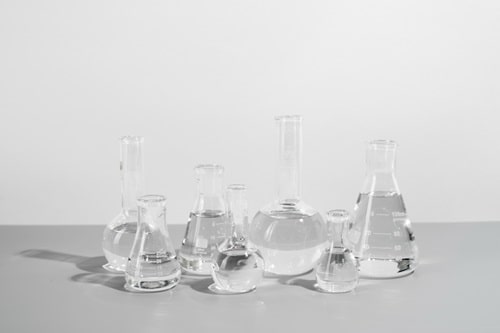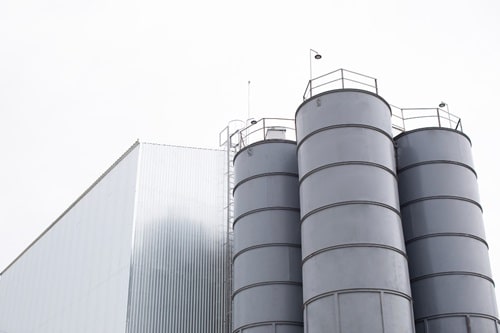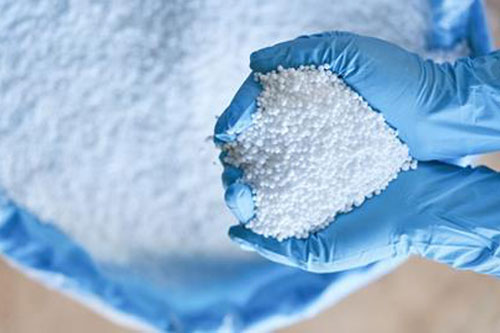Uncoated Granular Urea, also known as automotive granular urea or technical grade granular urea, is a high-purity, nitrogen-rich compound widely used in agriculture, industry, and commercial sectors.
Chemically identified as carbonyl diamide, this product is manufactured in the form of spherical granules (2–4 mm), ensuring versatility, ease of handling, and consistent application. With a nitrogen content of 46%, it is a key source of nitrogen for crops and an indispensable input for various industrial processes.
Technical Specifications
Nitrogen Content: 46%
Biuret Level: ≤ 0.90%
Formaldehyde-Free formulation
Particle Size: 2–4 mm granules
HS Code: 31021000
Manufacturers: Khorasan Petrochemical Company & Shiraz Petrochemical Company
Key Features & Advantages
Quick-Release Fertilizer: Rapid solubility in water ensures fast plant uptake, promoting greening and accelerated crop growth
High Purity: Free from formaldehyde and low biuret content, suitable for sensitive agricultural and industrial applications
Versatility: Serves both as a fertilizer and as a technical-grade nitrogen compound
Ease of Handling: Uniform particle size ensures consistent spreading and controlled application
Agricultural Applications
Applied directly to the soil as a fast-acting nitrogen fertilizer
Enhances crop yield and early-season growth in cereals, vegetables, and grasslands
Can be blended with other nutrients for balanced fertilization programs
Industrial Applications
Diesel Exhaust Fluids (AdBlue/DEF): Reduces nitrogen oxide (NOx) emissions in vehicles through Selective Catalytic Reduction (SCR) systems
Adhesives & Resins: Essential raw material in producing urea-formaldehyde resins and industrial adhesives
General Chemical Industry: Provides a reliable nitrogen source for pharmaceutical, polymer, and specialty chemical manufacturing
High Nitrogen Content (46%)
Uncoated granular urea delivers a highly concentrated 46% nitrogen source, essential for promoting vigorous vegetative growth and improving crop yield and quality. Its rapid uptake ensures efficient nutrient utilization by plants.
Versatile Usage
This technical-grade urea is widely used across agriculture, chemical, automotive, and pharmaceutical sectors. Applications include:
Fertilizers – as a quick-release nitrogen source
Industrial Chemicals – in adhesives, resins, and polymers
Diesel Exhaust Fluids (DEF/AdBlue) – to reduce NOx emissions
Its multi-sector adaptability makes it indispensable for global markets.
Easy Solubility
Automotive-grade granular urea dissolves rapidly in water, enabling uniform distribution through fertigation systems, irrigation, or direct soil application. Its quick solubility enhances its effectiveness as a fertilizer.
Pure & Uncoated
Free from coatings and with minimal impurities, this grade is particularly suited for sensitive applications in chemical manufacturing and pharmaceuticals, where product purity directly impacts performance and safety.
Consistent Quality
With chemical stability under normal storage conditions, uncoated granular urea maintains its integrity over time. Its reliability ensures predictable, high-quality performance across agricultural and industrial applications.
Uncoated Granular Urea, also referred to as automotive-grade urea or technical-grade urea, is a high-purity nitrogen compound valued for its 46% nitrogen content and excellent solubility. These properties make it indispensable across multiple industries, from agriculture to pharmaceuticals.
1. Production of AdBlue (Diesel Exhaust Fluid – DEF)
A key ingredient in AdBlue, which contains 32.5% urea and 67.5% deionized water
Reacts with NOx in diesel exhaust gases, converting them into harmless nitrogen and water
Helps reduce vehicle emissions and comply with environmental standards
2. Agricultural Fertilizer
Widely used as a quick-release nitrogen fertilizer
Ensures rapid nitrogen availability for crops, supporting strong growth and yield
Suitable for soil application, fertigation, and foliar sprays
3. Industrial Applications
Acts as a chemical intermediate in the production of plastics, adhesives, and resins
Essential for manufacturing urea-formaldehyde adhesives used in wood products and laminates
4. Pharmaceuticals
Used in medicinal formulations for its therapeutic properties
Functions as a keratolytic agent in dermatology treatments for dry, rough, or scaly skin
5. Laboratory Use
6. Resin Production
Integral to producing urea-formaldehyde resins
Widely applied in particleboard, plywood, laminates, and adhesives
7. Food Industry
8. Cosmetics & Personal Care
Incorporated into creams, lotions, and skincare formulations
Valued for its hydrating, exfoliating, and moisturizing properties
To accommodate diverse domestic and international shipping needs, Urea is packaged and transported in two primary ways:
Break Bulk
Urea is shipped in loose form without containerization
Loaded directly into bulk carriers or ship holds
Best suited for large-scale bulk shipments, maximizing load efficiency
Jumbo Bags
Urea is packed in 50–1000 kg bags, secured in shipping containers
Provides better protection against environmental factors such as moisture
Offers ease of handling and increased transport flexibility
Preferred for smaller deliveries or where controlled handling is required at the destination
Delivery Terms
The delivery of Urea is governed by standard Incoterms, which clearly define responsibilities between buyer and seller:
FCA (Free Carrier): Seller delivers goods to a specified point (e.g., warehouse/terminal), buyer arranges further transport.
Ex-warehouse: Buyer collects goods directly from the seller’s warehouse and assumes responsibility for shipping.
FOB (Free on Board): Seller loads Urea onto the buyer’s nominated vessel; risk transfers once the goods are on board.
CFR (Cost and Freight): Seller covers shipping costs to the destination port, but risk passes to the buyer after loading.
Advantages of Flexible Packaging & Delivery
Scalability: Adaptable for both bulk exports and smaller shipments
Efficiency: Jumbo bags simplify handling, while break bulk optimizes transport capacity
Risk Management: Clearly defined delivery terms minimize disputes and ensure smooth logistics









